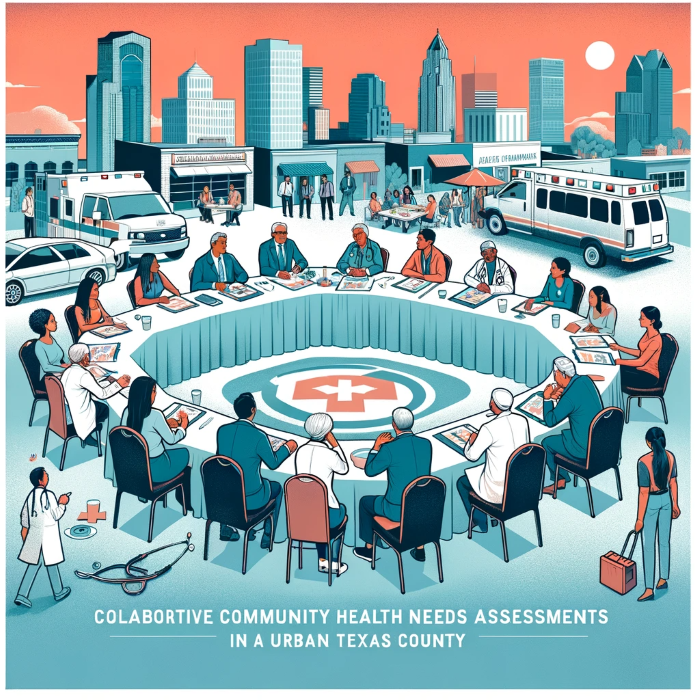
Unraveling Collaborative Community Health Needs Assessments: Insights from an Urban Texas County
Healthcare is a dynamic and complex field, constantly evolving in response to societal needs and policy changes. A study titled An action research partnership in an urban Texas county to explore barriers and opportunities for collaborative community health needs assessments published in Frontiers in Public Health, sheds light on this topic. This research delves into the challenges and opportunities surrounding Community Health Needs Assessments (CHNAs) in nonprofit hospitals, particularly in a north Texas urban county.
Background
The Affordable Care Act (ACA) mandated that nonprofit hospitals conduct triennial CHNAs to address community health needs effectively. Despite this, the study found that hospital spending on community benefits hasn’t significantly changed over a decade. Collaboration in CHNA could amplify hospital investment in community-based initiatives, but numerous factors in conservative states like Texas create hurdles.
Methodology
The study, initiated by urban academic faculty, collaborated with a coalition of nonprofit hospitals, public health departments, and academic institutions. It used a mix of document reviews and interviews to understand barriers to effective CHNA and develop strategies for collaborative initiatives.
Findings
The research uncovered that CHNA implementation is a multifaceted, cyclical process influenced by various public and private stakeholders. Key challenges include balancing different priorities and navigating a complex regulatory environment. The study suggests that enhancing collaboration in CHNA is possible by aligning it with organizational priorities and clearly communicating its benefits.
Workforce and Policy Implications
For the workforce, this study underscores the need for cross-sector collaboration skills and an understanding of the complex healthcare regulatory landscape. Policymakers should consider the unique challenges faced in conservative political environments and work towards frameworks that encourage effective collaboration in public health initiatives.
Conclusion
The study offers a conceptual framework for enhancing CHNA collaboration, particularly in politically and economically restrictive environments. It emphasizes the importance of understanding local contexts and the need for flexible, collaborative approaches in community health planning.
Want more? Of Course You Do! Stay Current in Public Health!
Stay at the Forefront with ‘This Week in Public Health’: Propel your professional journey in public health by subscribing to ‘This Week in Public Health.’ We curate the most critical updates in health research, community health milestones, and powerful advocacy movements weekly. Our newsletter serves as your informant, empowering you to make informed decisions and take meaningful actions in the health sector. By signing up for free, you’re not just getting updates; you’re getting an arsenal of knowledge to make a real difference in public health.



